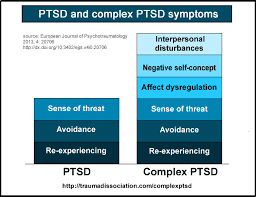Post Incarceration Syndrome (PICS): Exploring its Impact on Relationships and Reintegration
Research Question: How does Post Incarceration Syndrome (PICS) affect the relationships and reintegration of ex-offenders?
Introduction

Post Incarceration Syndrome (PICS) is a term used to describe a set of symptoms and behaviours exhibited by individuals who have been released from incarceration. This syndrome encompasses a range of challenges, including social isolation, difficulties with emotional regulation, and struggles with reintegration into society. This research aims to investigate the impact of PICS on the relationships and reintegration experiences of ex-offenders, shedding light on the multifaceted challenges they face as they strive to rebuild their lives.
Population of Interest: Ex-Offenders with Post Incarceration Syndrome
The population of interest for this research consists of individuals recently released from incarceration and experiencing symptoms associated with Post Incarceration Syndrome. This group is characterised by diverse experiences, backgrounds, and risk factors, including the duration of their imprisonment, the nature of their offence, and their access to support systems upon release.
Historical, Biological, Psychological, Cultural, Political, and Social Influences on Ex-Offenders with Post Incarceration Syndrome
Understanding the contextual factors that influence ex-offenders with PICS is critical to comprehending their challenges. Historical factors, such as the evolution of criminal justice policies, have shaped the experiences of individuals within this population. Biological and psychological factors may contribute to developing and manifesting PICS symptoms, including the potential impact of trauma experienced during incarceration. Cultural and social influences, including stigmatisation and discrimination, complicate reintegration further.
Key Variables and Previous Research
Emotional Regulation and Coping Mechanisms
– Studies have shown that ex-offenders with PICS frequently struggle with emotional regulation, leading to difficulties managing stress, anger, and anxiety. Coping mechanisms, such as aggression or substance use, may be employed as maladaptive strategies.
Social Isolation and Relationship Strain
– Research indicates that ex-offenders with PICS may experience social isolation, with strained relationships with family, friends, and community members. This can result from a lack of understanding or support for their challenges.
Reintegration into Society
– Reintegration is a complex process for ex-offenders with PICS. Studies have identified barriers such as limited employment opportunities, inadequate housing options, and challenges in accessing mental health services.
Evidence of Program Efficacy and Best Practices
Several programs and interventions have been developed to address the unique needs of ex-offenders with PICS. Cognitive-behavioral therapy (CBT) has shown promise in assisting individuals in developing healthier coping strategies and improving emotional regulation. Moreover, transitional housing programs and employment assistance initiatives have positively supported reintegration efforts.
Conclusion to Post-Incarceration Syndrome
Ex-offenders with Post Incarceration Syndrome face many challenges as they navigate reintegration. Understanding the impact of PICS on relationships and reintegration is essential for developing effective interventions and policies that promote successful community reentry. By examining key variables such as emotional regulation, social isolation, and reintegration experiences, this research contributes to a deeper understanding of the complex dynamics in ex-offenders’ lives with PICS. Additionally, exploring evidence-based practices and programs provides valuable insights into strategies to enhance this population’s well-being and successful reintegration. Ultimately, this research seeks to inform policies and interventions that foster positive outcomes for ex-offenders with PICS, promoting their reintegration into society and reducing recidivism rates.
References:
Link to external site: this link will open in a new window (2022). Enhancing community integration after incarceration: findings from a prospective study of an intensive peer support intervention for veterans with a historical comparison group. ProQuest. [online] doi https://doi.org/10.1186/s40352-022-00195-5.
Quandt, K.R. and Jones, A. (2021). Research Roundup: Incarceration can cause lasting damage to mental health. [online] Prison Policy Initiative. Available at: https://www.prisonpolicy.org/blog/2021/05/13/mentalhealthimpacts/.
Sheppard, S. (2021). What are the Mental Health Effects of Leaving Prison? [online] Verywell Mind. Available at: https://www.verywellmind.com/mental-health-effects-facing-former-inmates-5195312.





